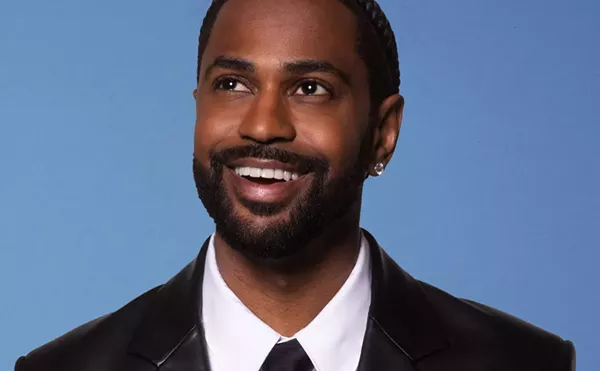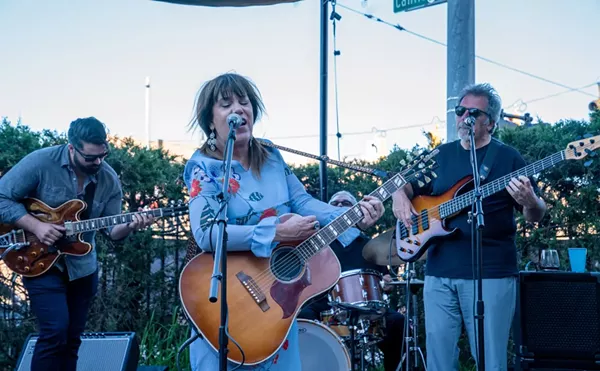
Audio By Carbonatix
[
{
"name": "GPT - Leaderboard - Inline - Content",
"component": "35519556",
"insertPoint": "5th",
"startingPoint": "3",
"requiredCountToDisplay": "3",
"maxInsertions": 100,
"adList": [
{
"adPreset": "LeaderboardInline"
}
]
}
]
Click here for Mike McGonigal's exclusive Q&A with Dr. John.
Dr. John was not having the best Fat Tuesday of his life last week. A scheduled gig in Nashville had been canceled due to that ice storm, and he sounded pretty down. This is a man who lives to play music. His new record Ske-Dat-De-Dat: The Spirit of Satch is all Louis Armstrong covers, done in his own style. It has one of the most interesting versions of "What a Wonderful World" you'll ever hear.
"Well Louis, he appeared to me in a dream and told me to make a record of my versions of his songs, so I did," he says. Simple as that!
I saw a poster for a festival show, where Dr. John performed alongside Sun Ra and the Stooges at the Michigan State Fairgrounds in May 1969. So I had to ask about that.
"The singer for the Stooges, Iggy, he was going around and bopping all the other musicians in the mouth with his microphone, while the band was playing!" he said. "Me and Sun Ra were sitting on the side of the stage, and we couldn't stop cracking up over that, how he just bopped them each in the mouth!" Speaking of Sun Ra, I was curious if Dr. John's 1969 release Babylon was a bit influenced by the Arkestra.
"I don't know, I can't tell you," he said. "Miles [Davis] asked me the same thing about that record. But I'm not sure I can hear it, myself."
Dr. John is not coming to Detroit anytime soon, but I had the opportunity to interview him on the back of a show at Town Hall in New York City, so I took it. We talked a bit about the legend and history of Congo Square in New Orleans; what it was like to have a father who owned a record store; how Gris Gris was cut using leftover studio time from a Sonny and Cher album; how he separately met Ahmet Ertegun and Jerry Wexler of his longtime record label Atlantic; the influence of gospel on early soul and R&B in New Orleans; the special "floating" sound he got from a busted-up and out of tune piano that Cosimo Matassa had; the influence of Latin music on New Orleans stuff and vice versa; and running and recording with his musical "brothers" — Robbie Baron, Walter Davis, Bobby Charles, and James Booker.






